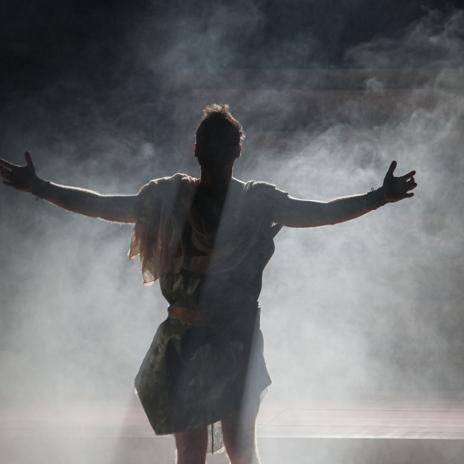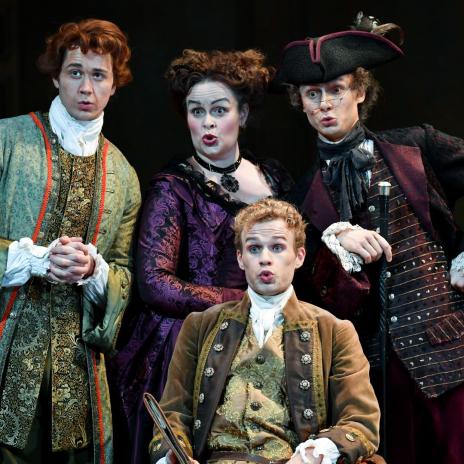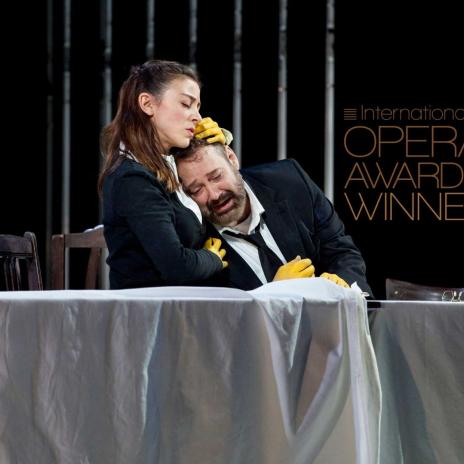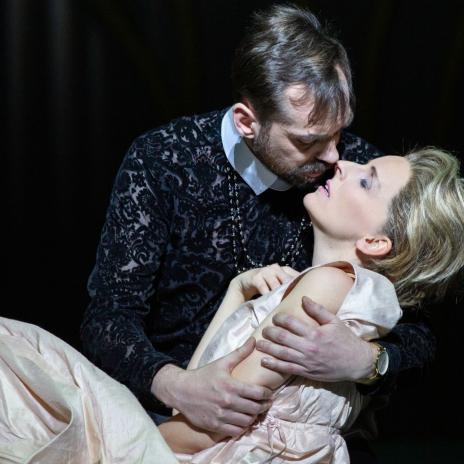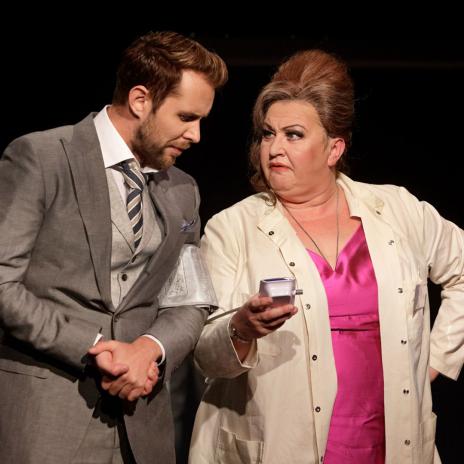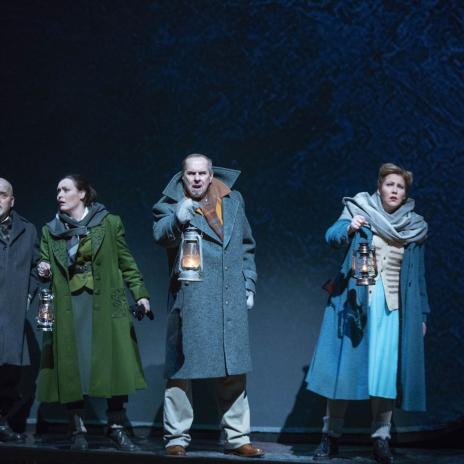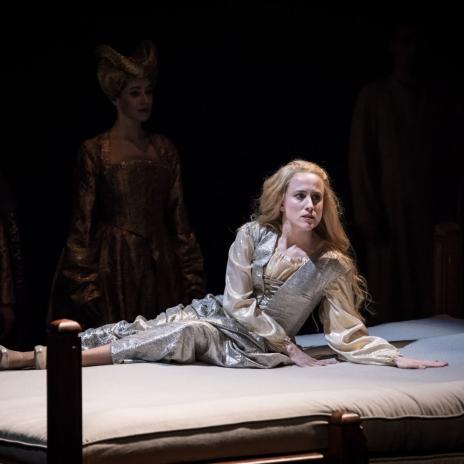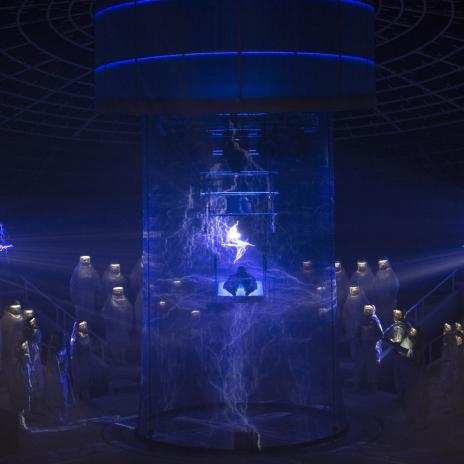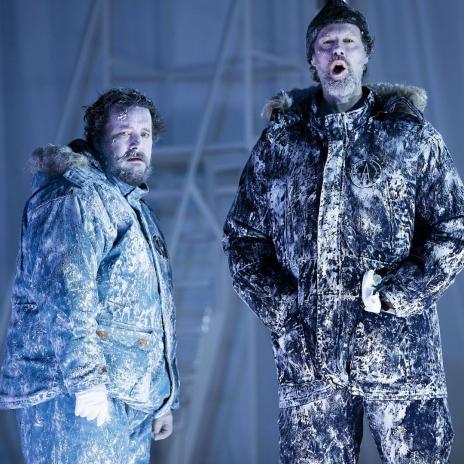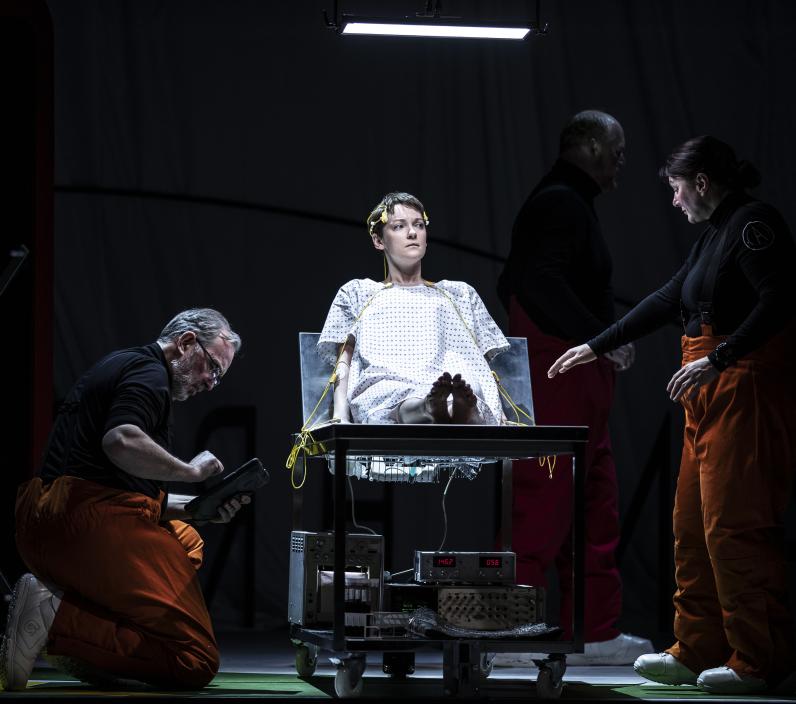

Opera for our time
In the beginning
Jacopo Peri composed Dafne, the earliest known opera, in 1597. Within a couple of decades, the long recitatives and fixed aria forms he had invented were already out of fashion. Audiences were instead turning to Monteverdi, whose operas such as L’Orfeo, according to a poet who attended the premiere, 'depicted the inclinations of the heart so skilfully that it could not have been done better.'
For over four centuries, opera has continually reinvented itself by experimenting with new ideas and adapting to evolving tastes. Opera is a product of its time. And while we still appreciate and enjoy many works of the past, others can sound incomprehensible and outdated.
Peri sparks little curiosity today while Monteverdi continues to fascinate audiences and theatre professionals alike. Salieri’s plots seem laboured and his supposed virtuosity less convincing, while we can hardly get enough of Mozart with his ingenious musical settings of perfectly crafted librettos such as The Marriage of Figaro and Don Giovanni. And even experienced opera-goers have to brace themselves for the full five acts of a French grand opéra like Halévy’s La Juive, while Verdi’s La traviata, written less than twenty years later, is still ringing in everyone’s ears.
Modern and postmodern opera
Janáček’s, Britten’s and Strauss' beautiful operas such as The Cunning Little Vixen and Billy Budd are regularly staged, but far fewer audiences get the chance to experience the joy of works like Schoenberg’s Moses und Aron or Berg’s Lulu. Repertoire from after the Second World War reveals such a stylistically diverse – if not fragmented – landscape of operas based on jazz and tango, romanticism and minimalism, electroacoustic sounds and serial concepts, that only the bravest of theatres dare to understand them and bring them back to the stage.
And the 21st century? Every year, scores of new operas are composed and commissioned, with some companies and festivals trying to premiere at least one new title each season. The variety of works being written today is almost inexhaustible but they all share a common desire to express something of our contemporary culture and concerns.
Nico Muhly’s 2011 opera Two Boys, for example, is a cautionary tale about the dark side of the internet. Andrea Molino’s 2012 opera Three Miles Island is about the nuclear fallout from the infamous radioactive leak at a Pennsylvanian power plant. And Daniel Bjarnason’s 2017 opera Brothers offers a stark insight into the post-traumatic stress suffered by a soldier deployed to Afghanistan.
World Premieres on OperaVision
As society changes, so too does the opera that it creates. In a contemporary Europe united in diversity, OperaVision aims to celebrate the variety of new works being composed and performed today and to share them as widely as possible. This season, we are proud to have brought five brand new operas to a global audience.
Two of these have come from Finnish National Opera. Iiro Rantala’s Sanatorio Express is a lively social satire about modern neuroses and relationships. With its classical structure and many jazz elements in the music, it is particularly suitable for the uninitiated to test the waters of new opera.
For something completely different, there’s Ice. Based on a Finnish bestselling novel from earlier this decade, it touches on the primordial fear of those things we cannot comprehend or control. Jaakko’s Kuusisto’s music conjures up the forces of nature in a national myth, as Sibelius did more than a century ago.
Trois Contes, which means ‘Three Tales’, is a new opera by Gérard Pesson staged for the very first time at Opéra de Lille. The composer’s quirky takes on the mystery of Marcel Proust’s legacy, Hans Christian Andersen’s popular tale The Princess and the Pea and Edgar Allen Poe’s story The Devil in the Belfry is an outstanding example of an intelligent postmodern compilation of timeless narratives – and very entertaining.
In the last ten years, Mary Shelley’s novella Frankenstein has been brought to the stage more and more. La Monnaie / De Munt has produced the latest of these: a new opera, Frankenstein, by the composer Mark Grey. Librettist Júlia Canosa i Serra sets it in the not-too-distant future, when scientists find the Creature frozen in ice, bring it back to life and learn about their past by letting it reflect on their present.
Finally, Anthropocene is a thrilling new opera by Stuart MacRae and Louise Welsh, their fourth collaboration and most ambitious to date. The title refers to a hot topic in social discourse – the effect of human beings on the planet. In that sense, it follows in the tradition of Philip Glass’ groundbreaking Qatsi trilogy of the 1980s, but with the polar ice caps and human relationships under threat of destruction rather than the Prutt-Igoe housing project.
The tides of change
Ice, Frankenstein and Anthropocene are all set in frozen surroundings. ‘It’s a landscape that invites myths,’ says Louise Welsh, who wrote the libretto for Anthropocene. ‘Lots of people have hallucinations on the ice, they see things that aren’t there.’ These stark and mysterious places have long appealed to novelists and filmmakers for the secrets they hide, the dangers they pose and the sense of eternity they exude. But just as opera composers and librettists are also turning to them for inspiration, this very eternity has been put into question by climate scientists.
All three operas are centered on the idea of outsiders, figures that come into the group and become catalysts for disruption. This is something shared by the other two works: in Sanatorio Express, a woman going through a divorce has her healing retreat ruined when her enraged husband bursts in on the scene; and all three tales in Trois Contes feature a stranger – a princess, a writer and the devil – who are treated with suspicion by families and communities riveted to their habits.
La Monnaie / De Munt dramaturg Antonio Cuenca Ruiz says that Frankenstein ‘confronts us with the violence that we’re capable of inflicting on others because of our prejudices or differences’ and that the ambitious but reckless doctor in the title role is alive and well in society today ‘as humanity is now more than ever bringing about new developments but having no control over the outcome.’
His words could equally apply to all five world premieres on OperaVision this season. They are all unique. They tell different stories through diverse musical styles presented in distinctive productions. Yet each is of our time. In a rapidly changing world – a world of genetic engineering, ubiquitous social media, faceless algorithms, warming climates and globalised systems – these ten librettists and composers are using their craft to tell our story as they see it today. It is a story of humanity’s hubris coming back to bite, of our inability to safely manipulate the world around us without consequence, and of how we have seemingly lost control of our destiny. Will Sanatorio Express, Ice, Trois Contes, Frankenstein and Anthropocene still be staged and enjoyed by audiences four centuries from now? Only time will tell.
